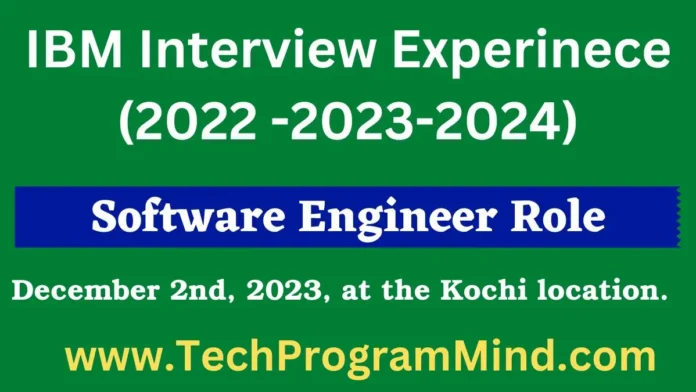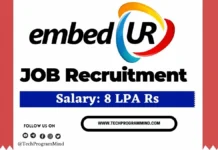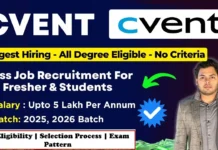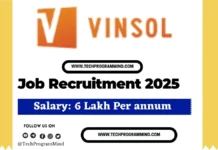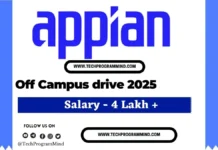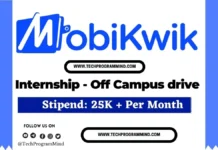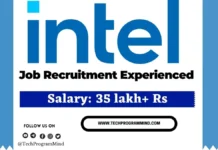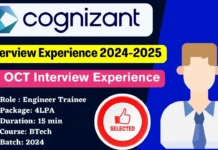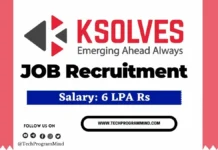IBM Interview Experience | ibm interview questions and answers 2023 2024 | IBM software engineer interview experience: Are you preparing for an IBM Software Engineer interview and looking for the latest information? Look no further! This page provides exclusive insights from a recent interview held on December 2nd, 2023, at the Kochi location.
Ace Your IBM Interview with Latest Experience & Answers!
Qns 1. Introduce Yourself
Answer:
Certainly! I am [Your Name], a recent graduate holding a [Your Degree] from [Your College/University]. My academic journey has been focused on [Your Major/Field of Study], and I am enthusiastic about channeling my skills and knowledge into a dynamic professional setting. Throughout my studies, I have developed expertise in [Key Skills], and I am eager to leverage these in a real-world context.
Qns 2. Academic Details
Answer:
I graduated from [Your College/University] in [Year of Graduation], achieving a [Your Degree]. My educational background provided me with a robust foundation in [Your Major/Field of Study], supplemented by active participation in [Any Relevant Academic Achievements or Extracurricular Activities].
Qns 3. About Final Year Project
Answer:
For my final year project, I delved into [Brief Description of Your Final Year Project], employing [Key Technologies/Tools Used]. In this undertaking, I assumed a pivotal role, contributing significantly to [Your Role/Responsibilities] throughout the project’s lifecycle.
Qns 4. Questions Based on Project
Answer:
I invite you to delve deeper into any specific facets of the project. Whether it’s about the [Project’s Challenges/Innovations/Outcomes], I am prepared to provide detailed insights into my experiences and contributions.
Qns 5. Role in Your Project
Answer:
In the project, I assumed the role of [Your Role/Responsibility], playing a pivotal part in [Brief Explanation of Your Role]. My contributions revolved around [Specific Contributions/Tasks], which had a tangible impact on the overall success of the project.
Qns 6. SQL Queries & Mostly based on joins, Normalization
Answer:
SQL Queries:
Structured Query Language (SQL) is used to interact with relational databases. SQL queries retrieve, manipulate, and manage data within these databases.
Joins in SQL:
Joins combine rows from two or more tables based on related columns. Common types include:
- Inner Join
- Left Join
- Right Join
- Full Join
- Cross Join
Normalization in SQL:
Normalization is a database design process that minimizes redundancy and dependency, ensuring data integrity. Key normal forms include 1NF, 2NF, and 3NF.
Qns 7. How to Compile Java Programs ?
Answer:
Compiling a Java program involves utilizing the ‘javac’ command, such as ‘javac FileName.java.’ This command translates the Java source code into bytecode, enabling subsequent execution by the Java Virtual Machine (JVM).
Qns 8. Streams in Java ?
Answer:
Streams in Java, introduced in Java 8, serve as a powerful mechanism for processing sequences of elements. Their utility lies in enabling concise and functional-style operations on data, fostering more streamlined handling of collections.
Qns 9. Primitive Data Types
Answer:
Java features eight primitive data types—byte, short, int, long, float, double, char, and boolean—serving as the foundational building blocks for constructing more intricate data structures.
Qns 10. Oops Concepts
Answer:
Object-Oriented Programming (OOP) principles in Java encompass encapsulation, inheritance, polymorphism, and abstraction. These concepts empower modular and organized code, fostering enhanced code reusability and maintainability.
Qns 11. What is Exception Handling ?
Answer:
Exception handling in Java entails using try, catch, and finally blocks to address runtime errors gracefully. This mechanism ensures a robust recovery from unexpected scenarios, preventing abrupt program termination.
Qns 12. How to Handling Exceptions ?
Answer:
Effectively handling exceptions in Java involves encapsulating potentially error-prone code within a ‘try’ block and employing a corresponding ‘catch’ block to manage and rectify exceptions, averting program disruptions.
Qns 13. Difference Between Error and Exception ?
Answer:
In the Java context, errors signify severe issues at the system level that are irrecoverable, leading to program termination. Exceptions, on the other hand, are programmatically addressable issues that can be caught and handled, preventing abrupt program termination.
Qns 14. what is ‘Final’ Keyword ?
Answer:
The ‘final’ keyword in Java, when applied to variables, methods, or classes, imparts specific characteristics. For instance, when applied to a variable, it renders it a constant (unchangeable), while on a method, it prevents overriding. On a class, it prohibits subclassing.
Qns 15. What is ‘Static’ Keyword ?
Answer:
In Java, the ‘static’ keyword is instrumental in creating class-level variables and methods. This implies that the variable or method belongs to the class itself rather than instances of the class, and it can be accessed directly using the class name.
Qns 16. What is Main Method in Java ?
Answer:
The ‘main’ method in Java serves as the entry point for a Java program. With a specific signature—’public static void main(String[] args)’—this method is invoked by the Java Virtual Machine (JVM) upon program execution, initiating the program’s runtime.
Qns 17. Do you have any question to ask?
Answer: No
These all are IBM Interview Experience which was asked in December 2nd, 2023 Face 2 face round.
If You are preparing for IBM Online Exam Round and Looking for coding question then check this below link:
- IBM Software Developer coding questions : Click Here
- IBM System Engineer Coding Question: Click Here
- IBM HackerRank Coding Question: Click Here
For Daily Jobs Update Join us:
| Join Telegram (Must) | Click Here |
| Subscribe Youtube channel | Click Here |
| Join Experienced Job Telegram | Click Here |
| Follow Instagram Job Page Link: | Join Here |

